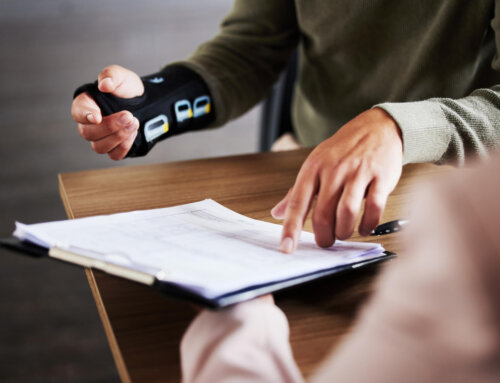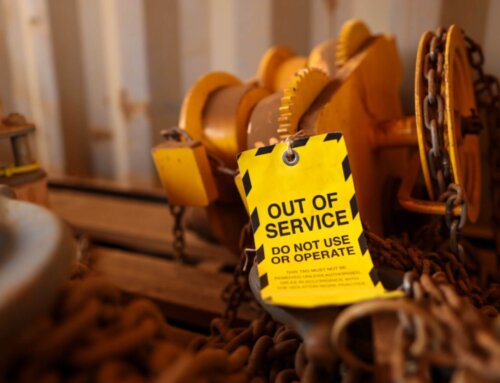Updated: May 2024 to include the latest guideline figures for assessing general damages in PTSD claims.
If you suffer PTSD from work-related issues, consider making a post-traumatic stress disorder claim against your employer.
Here are 12 things you should know:
1. Post-traumatic stress disorder (PTSD) is a mental health condition caused by a frightening, stressful or distressing event.
PTSD is an anxiety disorder and is a psychiatric condition.
2. PTSD is caused by being involved in or witnessing a horrific event.
For example, let’s say you witness or are involved in a car accident. Your physical injuries may be apparent right away(although whiplash injuries can take a day or two to appear).
Feeling anxious and in a low mood after an accident is only natural. Usually, these feelings will subside pretty quickly.
If you have flashbacks, nightmares, or more anxiety for weeks after an accident, you may have post-traumatic stress disorder.
3. An accident at work claim arises when your employer breaches their duty of care to keep you safe at work.
If, as a result of that breach of duty, you suffer an injury in an accident at work, you will have grounds for bringing an accident at work claim against your employer.
You could claim compensation for the pain and suffering the injury causes. In addition, your claim will include an amount to cover your financial losses already incurred and those yet to be incurred, such as:
- Loss of earnings
- Medical expenses
- Rehabilitation costs.
- Your employers duty to protect your health at work is not just limited to taking care of your physical health. They must also take all reasonable safeguards to look after your mental health.
If you were exposed to traumatic events whilst at work, the effects could trigger PTSD. For example, this might happen if you:
- are involved in a serious workplace accident or
- you witnessed an incident in which someone else suffered a serious injury whilst you were doing your job.
The traumatic event may take place in the workplace, or if your job involves driving, it could include a situation where you witness the aftermath of a major road traffic accident.
4. PTSD is a recognised mental health problem.

5. Symptoms of PTSD vary, but some of the more common ones are:
- Flashbacks to the traumatic incident: known as ‘Re-experiencing’
- Nightmares about what you saw and the aftermath
- You keep seeing distressing images of the incident
- Getting negative thoughts about the experience you have been through
- Unable to come to terms with what has happened: known as ‘Avoidance’
- Avoiding people and places that remind you of the traumatic event
- Unable to discuss what has occurred
- Getting distracted to block out thinking about the experience
- Deliberately trying to become emotionally numb
- Isolating oneself
- Feeling withdrawn
- Unable to relax and always anxious: known as ‘hyperarousal’
- Difficulty in concentrating
- Exhibiting challenging behaviour (particularly in the case of children with PTSD)
Stress can manifest itself in physical symptoms, as well, including:
- Sweating
- Feeling sick
- Headaches
- Fatigue
- High blood pressure
- Heart attacks
6. Workers particularly at risk of getting PTSD include:
- Doctors, nurses, paramedics, and other medical personnel
- Firefighters
- Armed forces personnel
- Police
- Professional drivers
- Journalists
People in certain occupations (like those listed above) are more likely to experience traumatic events than the general population.
7. When would my employer be liable to compensate me if I developed PTSD whilst doing my job?
Your employer must do whatever is reasonably practicable to ensure your health, safety, and welfare while at work. They owe you a duty of care; should they fail in that duty of care, they are negligent.
If you become involved in or witness a horrifying accident at work due to your employer’s negligence and you develop Post Traumatic Stress Disorder, you can bring a PTSD compensation claim against your employer.
8. Your employer could be in breach of their duty of care to keep you safe if they fail to:
- a) carry out a risk assessment on what could harm you in doing your job
- b) take precautions to stop any risk of harm to you from happening
- c) explain how the risk will be controlled and who is responsible for controlling it
- d) consult and work with you to prevent you and your colleagues from coming to harm
- e) provide you with the training you need to be able to carry out your job safely
- f) provide you with the tools and PPE to allow you to do your job safely
- g) maintain your tools and PPE equipment in good order
9. How would I prove I got PTSD from an accident at work?
You need to be aware of the symptoms of PTSD. If you experience any of the symptoms outlined, your first call should be to your GP.
If your GP believes you are suffering from post-traumatic stress disorder, they will refer you to a consultant psychiatrist or psychologist to conduct a mental health assessment.
The assessment will focus on your:
- Physical needs
- Mental needs
- Social needs
- Risk
A decision will be made on whether to refer you to the community mental health team (CMHT). If your symptoms persist for more than four weeks, you should be directed to the CMHT, part of the NHS.
10. How do I make a PTSD claim against my employer?
PTSD accident at work claims can be complex legal cases to pursue. For that reason alone, you should seek out the assistance of an experienced accident at work solicitor. Here are some more reasons for contacting a solicitor who knows how to handle PTSD compensation claims:
- They can advise you on the prospects of making a successful PTSD claim in your case
- If you have reasonable prospects of bringing a successful PTSD, claim against your employer, a personal injury solicitor will know how to navigate the process of getting the correct medical reports to prove that you have PTSD.
- An expert in PTSD claims will also know the right amount of compensation to fight for on your behalf and will do so by using a No Win No Fee Agreement to protect you from having to pay legal costs if your claim isn’t successful.
- If you don’t have to worry about legal fees, you are more likely to pursue a claim. This means you will strive to obtain the highest compensation possible. A No Win No Fee PTSD claim will help you achieve that result.
11. How much will I get for a PTSD at work claim?

In addition to the injury claim, there will usually be a special damages claim.
- Special damages claims include claims for items such as:
- loss of earnings,
- medical fees,
- travel expenses,
- rehabilitation and care costs
and all other ‘money’ claims.
The amount and types of special damages vary in every case.
You claim general damages for the pain, suffering and loss of amenity caused by the injury. The term ‘loss of amenity’ refers to how much the injury has affected your daily life.
The following table provides guidelines on how the court assesses general damages for PTSD.
| Severe PTSD : |
£73,050 to £122,850 |
| Every aspect of the injured person’s life will be affected with permanent effects
|
|
| Moderately Severe PTSD | £28,250 to £73,050 |
| Some recovery with professional help | |
| Moderate PTSD | £9,980 to £28,250 |
| Largely recovered: continuing defects not grossly disabling | |
| Less Severe | £4,820 to £9,980 |
| Virtually full recovery within 2 years |
Guideline general damages figures as set out in the ‘Judicial College Guidelines for the Assessment of General Damages in Personal Injury Cases 17th Edition, 2024′.
12. Can PTSD be treated?
Doctors recommend three types of therapy for treating PTSD.
- Cognitive Behavioural Therapy (CBT)
- Eye Movement Desensitisation and Reprocessing (EMDR)
- Group therapy
Your personal injury solicitor will help arrange appropriate treatment in conjunction with your medical experts and look to recover the costs from your employer’s insurance company.
Only instruct specialist personal injury solicitors to take on an accident at work claim for PTSD. Mooneerams Solicitors only handle personal injury claims and only for claimants, i.e. those making a claim. Mooneerams don’t act for insurance companies or employers.
Moooneerams Solicitors won the Personal Injury Team of the Year accolade at the Wales Legal Awards in 2022. Our Personal Injury team has over 100 years of combined experience handling personal injury claims.
Mooneerams handle most Post Traumatic Stress Disorder claims on a ‘No Win No Fee’ basis. This means you usually have nothing to pay if your claim is unsuccessful.
Call Mooneerams on 029 2048 3615 for a free initial consultation with one of our team of personal injury experts.
Watch Our Video – 12 Things You Should Know About Making A PTSD Claim Against Your Employer
Further reading:
- NHS Website – Post Traumatic Stress Disorder (PTSD)
- Rethink Mental Illness – PTSD
- NICE – National Institute for Health and Care Excellence – PTSD Diagnosis
- What is PTSD? – MIND
For more information about making a PTSD claim, visit our claim page here.









